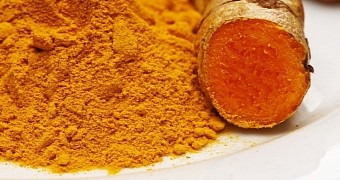Researchers writing in a recent issue of the journal Stem Cell Research and Therapy say that, according to their investigations, it might be possible to use turmeric, which is one of the spices in curry powder, to treat various brain conditions.
Thus, evidence at hand indicates that one of the compounds in turmeric encourages brain cells growth. If this is indeed the case, the compound in question, named aromatic turmerone, could help treat neurodegenerative diseases.
Experimenting on rats
As detailed in the journal Stem Cell Research and Therapy, scientists are yet to prove that aromatic turmerone can benefit people diagnosed with Parkinson's, Alzheimer's or other similar conditions.
However, data collected while experimenting on living laboratory rats and rat brain cells show that this compound found in turmeric has a beneficial effect on the brain. In a nutshell, aromatic turmerone appears to promote the growth of new brain cells.
Time tells us that, looking to establish how this compound in turmeric influences brain activity, the specialists behind this research project started by injecting several rats with it. Afterwards, they kept tabs on what was happening inside the rodents' brains.
What's more, the scientists exposed several rat brain cells kept in laboratory conditions to the compound, and kept a close eye on them to determine how they responded to the artificially created environment they were placed in.
It was discovered that, when injected with aromatic turmerone, the rats produced about 80% more neutral stem cells, which in turn took less time to turn into neurons. Besides, the rats experienced an increase in the size of two brain areas known to serve as neuron nurseries.
Importance of this study
Scientists are still a long way from proving that it is possible to use aromatic turmerone to treat neurodegenerative disorders in humans. Still, the outcome of this series of experiments brings new hope to people diagnosed with Parkinson's and Alzheimer's.
Thus, specialists say that, if humans respond to this compound in a manner similar to that of rats, it might be possible to use turmeric or drugs whose makeup is based on that of aromatic turmerone to halt the progress of neurodegenerative diseases.
“Both in vitro and in vivo data suggest that ar-turmerone induces NSC [neutral stem cells] proliferation,” the researchers behind this study write in their paper in the journal Stem Cell Research and Therapy. “Aromatic turmerone thus constitutes a promising candidate to support regeneration in neurologic disease,” they go on to explain.

 14 DAY TRIAL //
14 DAY TRIAL //